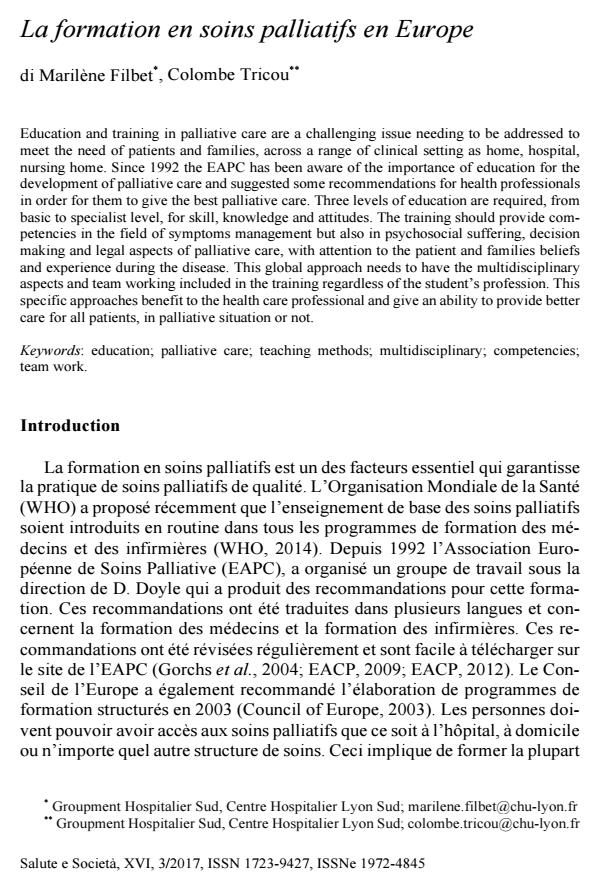La formation en soins palliatifs en Europe
Journal title SALUTE E SOCIETÀ
Author/s Marilène Filbet, Colombe Tricou
Publishing Year 2017 Issue 2017/3
Language French Pages 10 P. 21-30 File size 60 KB
DOI 10.3280/SES2017-003003
DOI is like a bar code for intellectual property: to have more infomation
click here
Below, you can see the article first page
If you want to buy this article in PDF format, you can do it, following the instructions to buy download credits

FrancoAngeli is member of Publishers International Linking Association, Inc (PILA), a not-for-profit association which run the CrossRef service enabling links to and from online scholarly content.
Education and training in palliative care are a challenging issue needing to be addressed to meet the need of patients and families, across a range of clinical setting as home, hospital, nursing home. Since 1992 the EAPC has been aware of the importance of education for the development of palliative care and suggested some recommendations for health professionals in order for them to give the best palliative care. Three levels of education are required, from basic to specialist level, for skill, knowledge and attitudes. The training should provide competencies in the field of symptoms management but also in psychosocial suffering, decision making and legal aspects of palliative care, with attention to the patient and families beliefs and experience during the disease. This global approach needs to have the multi-disciplinary aspects and team working included in the training regardless of the student’s profession. This specific approaches benefit to the health care professional and give an ability to provide better care for all patients, in palliative situation or not.
Keywords: Education; palliative care; teaching methods; multidisciplinary; competencies; team work.
Marilène Filbet, Colombe Tricou, La formation en soins palliatifs en Europe in "SALUTE E SOCIETÀ" 3/2017, pp 21-30, DOI: 10.3280/SES2017-003003